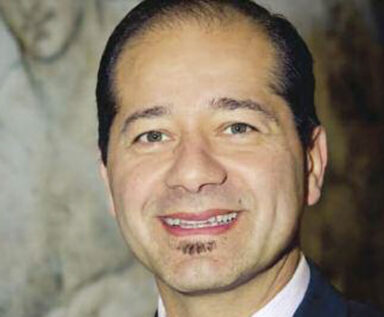Depression: A Physician’s Perspective
Major depressive disorder is a prevalent condition, but with swift and appropriate treatment, the chance of recurrence can be minimized.
- By Trudie Mitschang
 GUS ALVA, MD, is the medical director of ATP Clinical Research (a premiere private clinical research company specializing in neuropsychiatric investigations) in Costa Mesa, Calif. He also is a forensic psychiatric consultant for the Orange County Superior Court and a diplomate of the American Board of Psychiatry and Neurology.
GUS ALVA, MD, is the medical director of ATP Clinical Research (a premiere private clinical research company specializing in neuropsychiatric investigations) in Costa Mesa, Calif. He also is a forensic psychiatric consultant for the Orange County Superior Court and a diplomate of the American Board of Psychiatry and Neurology.
Dr. Alva has served as a principal investigator since 1995, conducting investigations of myriad neuropsychiatric conditions, including Alzheimer’s, depression, anxiety disorders, bipolar disorder and psychotic conditions. As a clinician and investigator, Dr. Alva’s focus is on the genetics, neuroimaging and latest treatments available. He has published numerous articles, and presents at both national and international meetings and conferences.
BSTQ: What are the most common misconceptions about major depressive disorder (MDD)?
Dr. Alva: Most people don’t realize how prevalent MDD is. It actually falls just behind hypertension in terms of how frequently it is diagnosed. The other misconception is that MDD is somehow linked to a character flaw or weakness; MDD is a medical problem requiring medical intervention. The truth is, medical treatment can restore an individual’s ability to function normally following an MDD diagnosis.
BSTQ:What is your typical treatment approach for MDD?
Dr. Alva: You have to tailor the treatment to the individual patient, and, unfortunately, finding the right approach often requires trial and error. Sometimes individuals will respond to psychotherapy alone, but often we find there is a synergy between medication and therapy, and when done simultaneously, the outcome can be very positive. The challenge we face with medications that treat MDD is that a lot of the traditional options present numerous unwanted side effects such as weight gain and sexual dysfunction. Thankfully, there are many newer medications and treatment options in the pipeline that promise better results with fewer side effects. The bottom line is: It’s never a cookie-cutter approach.
BSTQ: Can MDD be cured?
Dr. Alva: MDD is considered a chronic recurrent problem. After a patient has one episode of MDD, they have a 50 percent chance of another episode. The odds keep rising, and after a third episode of MDD, the chances of recurrence are better than 90 percent. That’s why we always encourage patients to seek appropriate treatment as soon as symptoms present themselves.
BSTQ: What is your opinion of experimental drugs like ketamine for the treatment of MDD?
Dr. Alva: Ketamine is an anesthetic medicine that was developed nearly 50 years ago. Recently, research has demonstrated that ketamine may be administered intravenously in doses far below those used for surgery to provide rapid relief from symptoms of depression and anxiety, although it is still considered experimental. Because ketamine use can result in psychotic episodes and other negative side effects, I think there are safer treatments for dealing with MDD. One that has been approved by the U.S. Food and Drug Administration since 2008 is called transcranial magnetic stimulation (TMS). TMS uses magnetic fields to stimulate nerve cells in the brain to improve symptoms of depression. TMS may be tried when other depression treatments have failed.
BSTQ: In addition to medication and therapy, are there any lifestyle changes recommended for the treatment of MDD?
Dr. Alva: Lifestyle changes are always important. A Mediterranean-style diet is helpful —what’s good for the body is also good for the brain. It’s also proven that exercise releases endorphins that act as opiates and improve mood. We look at a patient’s current diet and activity levels and make recommendations as part of a total treatment plan.
BSTQ: Tell us about some of your recent clinical trials.
Dr. Alva: Currently, our focus is on augmentation strategies. A lot of studies show that adding a second medication to an existing medication —what we call augmenting agents in MDD — can be very effective. There also are a couple of new antidepressants in the pipeline that may offer additional aid to individuals who have not successfully responded to previous medications.